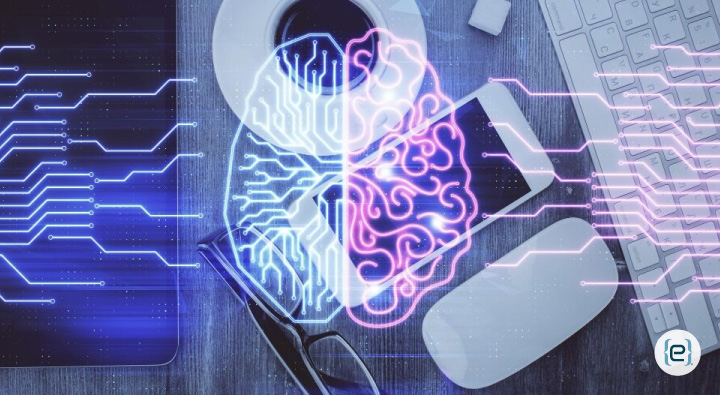Artificial intelligence is pretty cool, right? It can do all sorts of neat things like write essays and create art. But some folks are worried it might make us all a bit slow in the noggin. Let’s chat about that for a sec.
AI won’t make everyone dumb, but it could change how we think and solve problems. It’s like having a super smart friend who’s always ready to help out. That’s great, but you still need to use your own brain too. If you rely on AI for everything, you might forget how to figure things out on your own.
We’re not doomed to become couch potatoes of the mind, though. AI can be a tool that helps us learn and grow if we use it wisely. It’s up to you to stay curious, ask questions, and keep your mental muscles in shape. With a little effort, you can enjoy the perks of AI without turning into zombies. Who knows? Maybe you’ll even get smarter in new ways!
Unpacking the Impact of AI on Cognitive Abilities
AI is changing how we think and process information. It’s important to look at both the good and bad effects this technology might have on your brain.
The Role of AI in Promoting Cognitive Growth
AI can be a powerful tool for learning and problem-solving. It gives you access to vast amounts of information at your fingertips. This can help you learn new things faster and easier than ever before.
You can use AI to practice skills and get instant feedback. This speeds up the learning process. For example, language learning apps use AI to adapt to each user’s needs. AI can also handle routine tasks, freeing up your mind for more creative thinking. This lets you focus on complex problems that machines can’t solve yet.
But you need to be careful. AI shouldn’t replace critical thinking or deep learning. It’s a tool to enhance your abilities, not a substitute for them.
Potential Risks of Over-Reliance on AI Systems
Using AI too much might make you a lazy thinker. If you always turn to AI for answers, you might forget how to solve problems on your own.
There’s a risk of losing important skills. For instance, if you rely on GPS all the time, your natural sense of direction might get worse. AI can sometimes give wrong or biased information. If you don’t check facts yourself, you might believe things that aren’t true.
Too much screen time with AI apps could also affect your attention span. You might have trouble focusing on tasks that don’t give instant rewards.
To stay sharp, you need to use your brain actively. It’s important to balance AI use with offline activities and face-to-face interactions.

Maintaining Intellectual Health in the Age of AI
AI brings many benefits, but you need to be mindful of keeping your mind sharp. Let’s look at ways to stay intellectually fit while using AI tools in your daily life.
Strategies for Cognitive Enrichment
You can take simple steps to keep your brain active. Reading challenging books stretches your mind. Doing puzzles and brain teasers boosts problem-solving skills. Learning a new language or instrument builds new neural connections.
Physical exercise isn’t just for your body – it helps your brain too! A brisk walk or jog increases blood flow to the brain. This can improve memory and thinking skills.
Social interaction is key for brain health. Talking with friends, joining clubs, or volunteering keeps you mentally engaged. These activities challenge you to think on your feet and see things from new angles.
The Importance of Human Creativity
AI can generate content, but true creativity comes from the human mind. You should nurture your unique ideas and perspectives. Brainstorming sessions without tech can spark fresh thoughts.
Trying new hobbies lets you tap into different parts of your brain. Painting, writing, or gardening can unlock hidden creative talents. These activities give your mind a break from screens and AI.
It’s fun to collaborate with AI, but you shouldn’t rely on it for all your creative needs. A mix of AI assistance and human imagination often leads to the best results.
AI and Kids
Children’s brains are still developing, so balance is crucial. You can set screen time limits and encourage outdoor play. This helps kids build social and motor skills that AI can’t replace.
Educational AI tools can be great learning aids. But kids also need hands-on experiences. Building with blocks, drawing, and imaginative play are vital for growth.
You can teach kids to use AI as a helper, not a crutch. Show them how to fact-check AI responses. Encourage critical thinking about the information AI provides. This builds digital literacy skills they’ll need as adults.
AI and Brain Studies
We’re fascinated by how AI and brain research intersect. Scientists are comparing artificial neural networks to our own gray matter. It’s like a high-tech game of “spot the difference”!
AI models are getting better at mimicking certain brain functions. They can recognize patterns and make decisions in ways that seem almost human. But your brain still has some tricks up its sleeves.
For example, humans are champs at learning from just a few examples. AI often needs tons of data to get things right. You’re also great at adapting to new situations on the fly.
Some worry that relying too much on AI might make us lose important skills. It’s like how calculators changed how we do math. But others see AI as a tool to enhance our abilities, not replace them.
Brain-computer interfaces are another exciting area. These devices let your mind communicate directly with machines. It’s pretty sci-fi stuff!
Here are some key areas where AI and brain studies overlap:
- Pattern recognition
- Decision making
- Learning and memory
- Language processing
- Visual perception
As research continues, you’ll likely see even more connections between silicon and neurons. It’s an exciting time to be a brain (or an AI)!
Concerns for the Future
As you look ahead, there are some worries about AI’s impact on your life. Many people fear AI might make us less smart over time. You might rely on it too much and stop thinking for yourself.
There’s also concern about jobs. AI could replace many workers, leaving folks unemployed. This could cause big problems for society if we’re not careful.
Some experts worry about AI getting out of control. They think it might become so advanced that humans can’t manage it anymore. That sounds pretty scary!
Privacy is another big issue. AI systems collect tons of data about you. You need to make sure that info stays safe and private.
On a lighter note, maybe AI will just make us lazy. Why learn anything when we can ask a robot? (Just kidding… kind of.)
These concerns are real, but they don’t mean AI is all bad. You just need to be thoughtful about how you use it. With care and smart rules, AI can help make your life better without making you dumber.
Conclusions
AI likely won’t make everyone dumb, but it could change how you think and learn. Some worry AI might make you lazy or overly reliant on technology. Others see it as a tool that could enhance your abilities.
The key is using AI wisely. You shouldn’t let it replace critical thinking or creativity. Instead, you can use AI to handle routine tasks and free up time for higher-level thinking.
Education will need to adapt. Schools may focus more on uniquely human skills like emotional intelligence and complex problem-solving. They’ll also need to teach responsible AI use.
There are risks to watch out for. AI could spread misinformation if you’re not careful. It might also widen inequality if only some people have access to the best AI tools.
On the bright side, AI could make learning more personalized and accessible. It could help people with disabilities or learning differences.
The future isn’t set in stone. How AI affects your intelligence depends on the choices you make as a society. With thoughtful planning, you can harness AI’s benefits while avoiding pitfalls.
(Did you hear about the AI that tried to make everyone dumb? It kept crashing because it couldn’t process all the “artificial stupidity”!)
To explore more about how AI can be harnessed for your benefit, contact eMazzanti today to learn how we can assist you in integrating AI solutions effectively.







